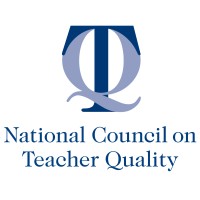
Educators for Excellence
About us Educators for Excellence is a teacher-led organization that ensures teachers have a leading voice in the policies that impact their students and profession. Our nation’s education system is leaving millions of students—including an overwhelming number of students of color and low-income students—unprepared for college, career, and life. Only one in 10 students of color and low-income students graduate from college in the United States. The result is an opportunity gap and divide along racial and class lines that threatens the future of our communities, economy, and democracy. While research shows that classroom teachers are the single most important in-school factor in improving student achievement, their diverse voices are consistently left out of education policy decisions. Even though policymakers at every level of the system are talking about teachers, they rarely are talking with teachers. Founded by public school teachers, Educators for Excellence is a growing movement of 25,000 educators, united around a common set of values and principles for improving student learning and elevating the teaching profession. We work together to identify issues that impact our schools, create solutions to these challenges, and advocate for policies and programs that give all students access to a quality education.






